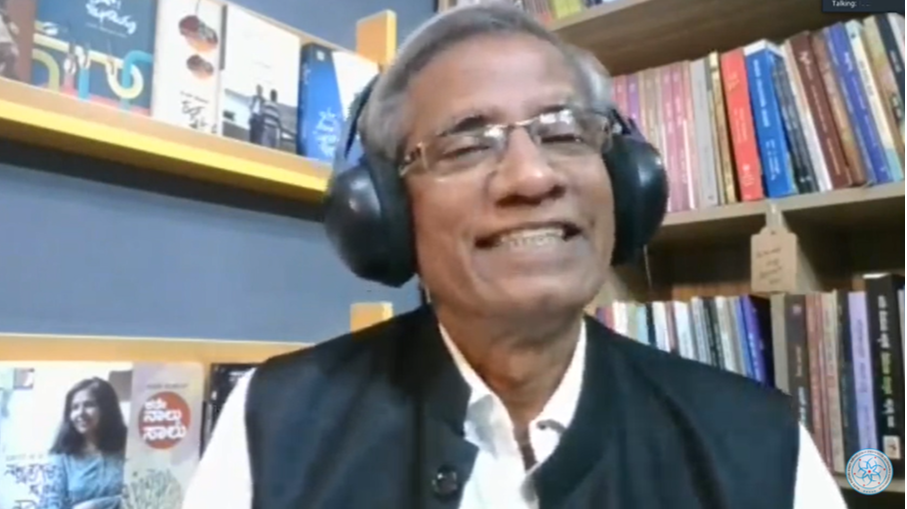STORY CREDITS
Writer/Editor: Shivangi Vasudev Bhatt
Photo: Media and Communication, IIT Gandhinagar
Moving towards the end of the sixth edition of the Introduction to Indian Knowledge Systems elective course (IKS 2022), IITGN hosted two online lectures that introduced participants to the hidden treasure of tribal oral literature and epics. Prof T V Kattimani, an educationist, creative writer, translator and thinker, delivered two lectures – ‘Tribal Identity as depicted in Oral Literature’ and ‘Tribal Epics and Indian Knowledge Systems’ – on April 19 and 21, 2022.
Beginning his first lecture, Prof Kattimani highlighted the fact that the tribal population in India is more than ten crores, with diverse cultures, music, and art. Elaborating on the oral traditions in tribal culture, Prof Kattimani said, “Before the colonial invasion, tribes were the actual custodians of forests, minerals, and domestic and wild animals. The knowledge systems of ethnic communities were always in oral form rather than written. This knowledge was believed in and practised by society. For example, every year, the quantity of rainfall was defined by the tribes in the Western Ghats by smelling a particular tree in summers.” He informed that wall, rock, and Ghotul paintings are the creative expressions of some of the tribes and emphasise the importance of land, sky, and water. For thousands of years, all this information was transmitted from teachers to disciples as tribal oral literature in the form of stories, songs, dances, riddles, and other genres.
Prof Kattimani’s second talk underlined that each tribe has its distinct language, oral traditions, customs, practices, and knowledge. They have their own worldview (Lok – Drishti) and wisdom and have produced their own epics, stories of warriors and saints, tales of women’s identity and struggle, and narratives on medicines. Talking about it, Prof Kattimani mentioned, “Tribal knowledge systems broadly refer to the understandings, skills, and philosophies developed by tribes through a long history of interactions with their natural surroundings. They are a part of every tribe’s way of life. The integral components of these knowledge systems include not to lie, not to harm anyone, and to support the ecosystem.” Tribal knowledge systems are based on historical experiences that underwent social, economic, environmental, spiritual, and political changes with time. Both the talks concluded with lively Q&A sessions.
Prof T V Kattimani has studied composite cultures of India and their pan-Indianness represented through different Indian languages. As an educationist, he has focused on tribal India and education for the tribal and underprivileged youth. As a translator, he has worked with languages like Kannada, Hindi, Gujarati, and English. He currently serves as the first Vice-Chancellor of the Central Tribal University of Andhra Pradesh (CTUAP); he was formerly the Vice-Chancellor of Indira Gandhi National Tribal University, Amarkantak (MP). He is a member of the National Steering Committee for the New Education Policy of India.
This edition of IKS 2022 is being held online on the theme ‘Precolonial India’s Treasure House of Literatures’. The course is open to students and anyone interested in India’s knowledge systems and cultural heritage. Previous lectures of the series can be viewed on the course’s website: https://iks.iitgn.ac.in
This news has been covered by some of the leading Indian newspapers and media agencies. Click on the links below to read more.

